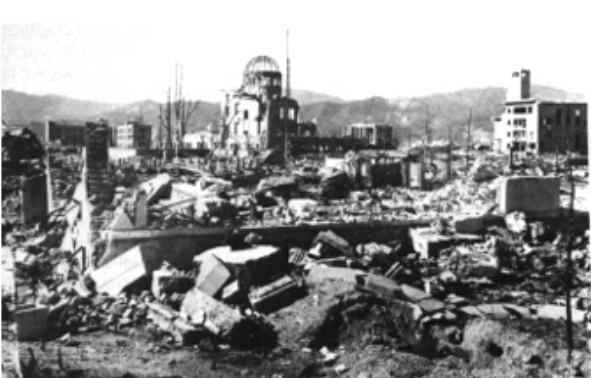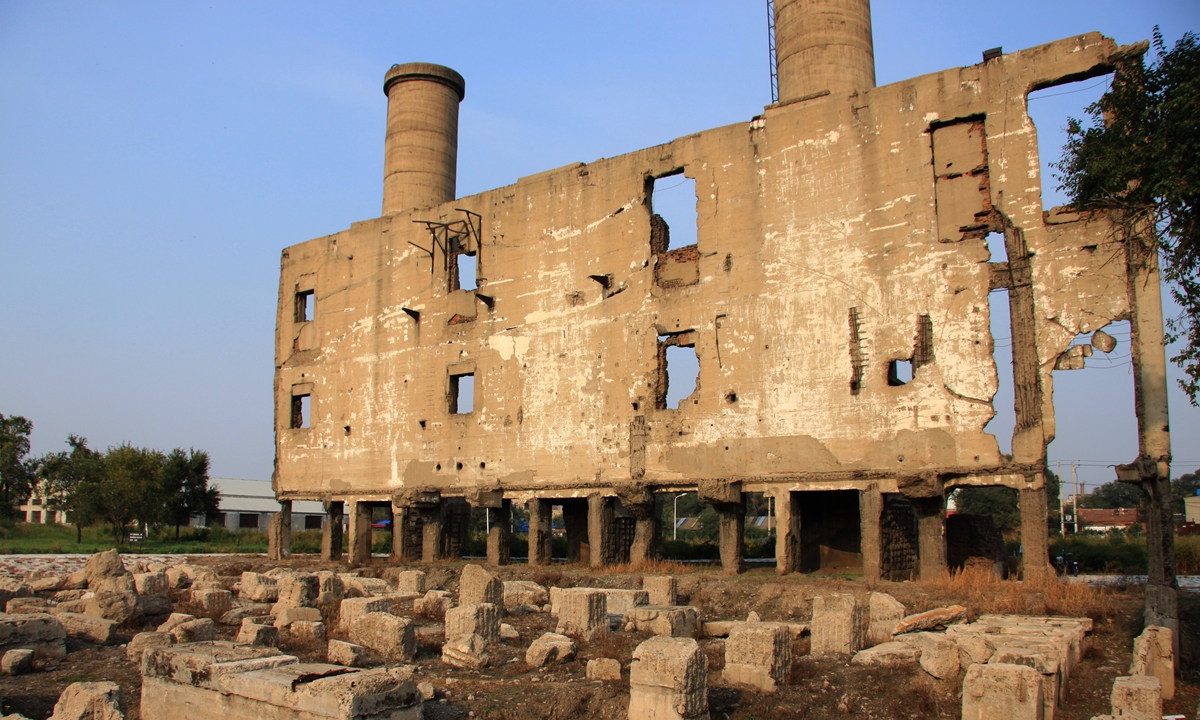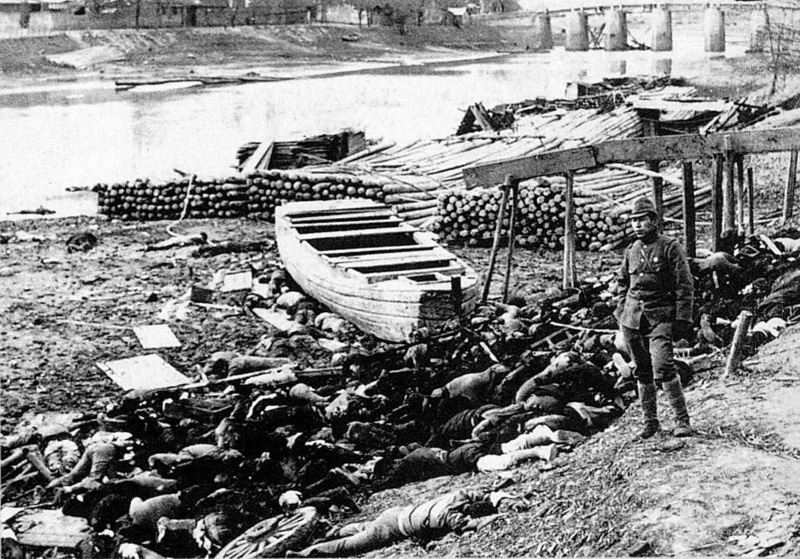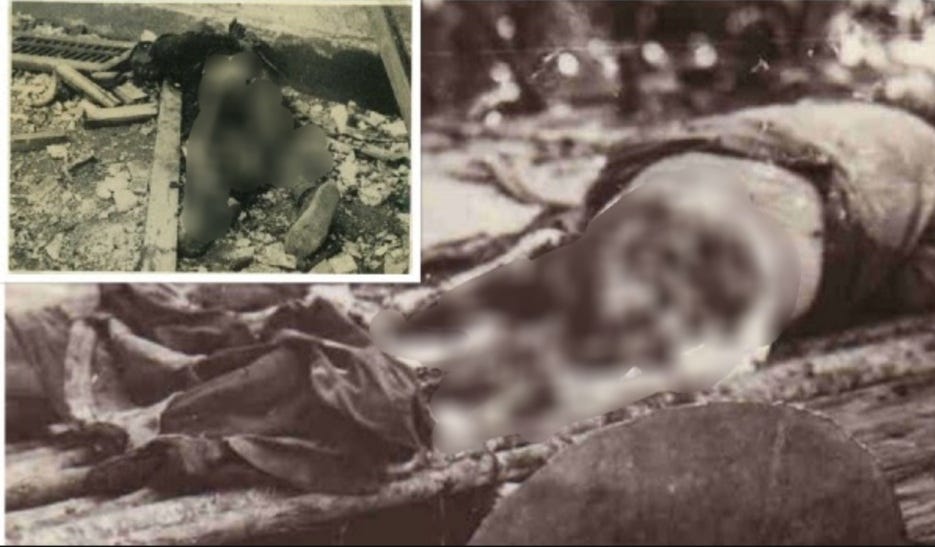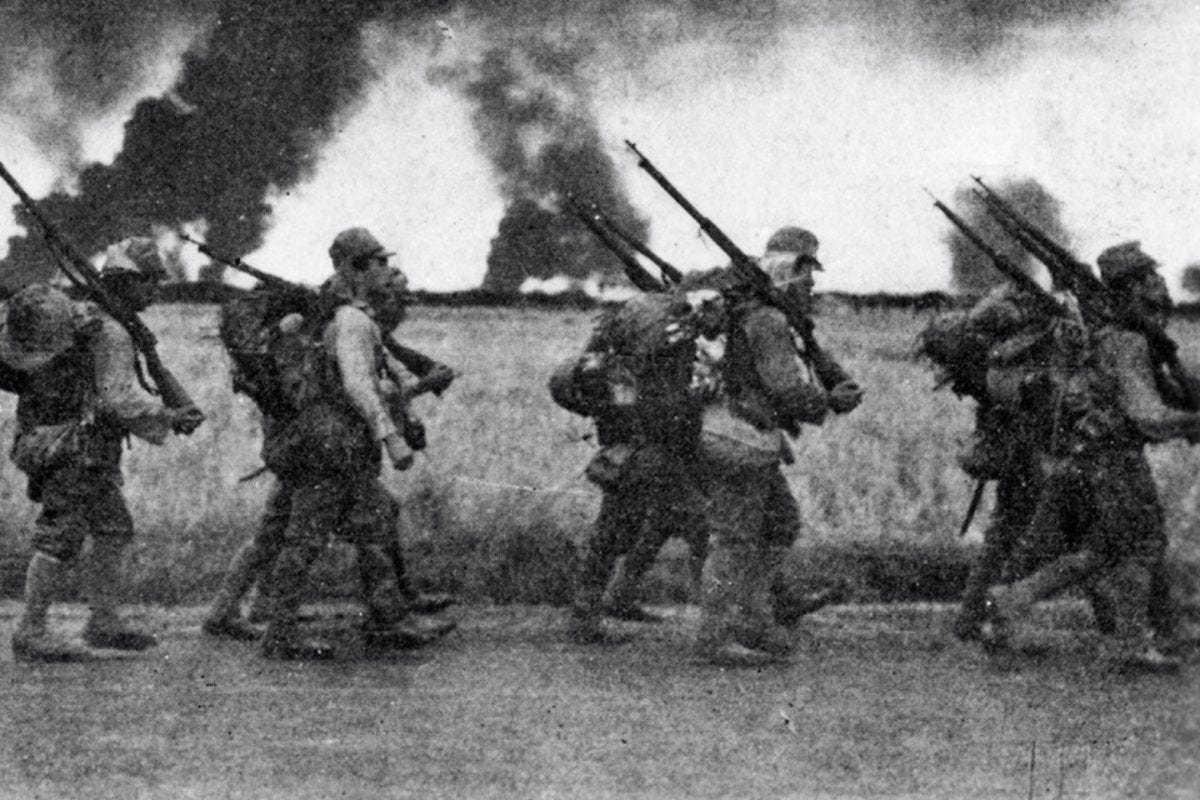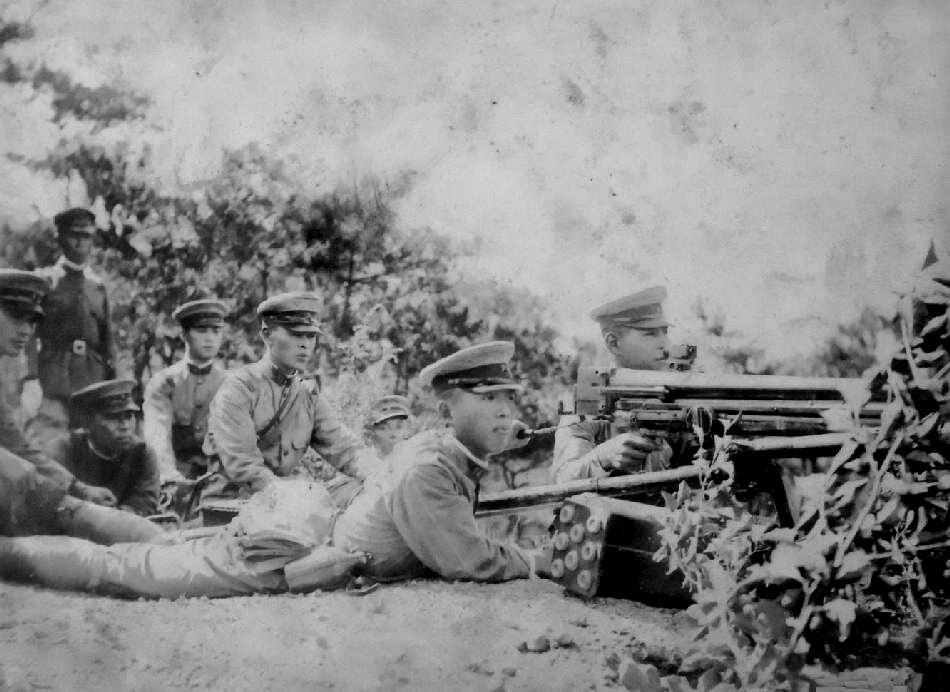Dark Stories of Japanese Cannibalism in World War Two
Records found how the Japs ate comrades, civilians, and POWs across Asia
Japanese War Crimes in World War II | Image:
Pacific Atrocities Education Organization
Many horror stories occurred during World War Two. In Europe the Axis forces led by the Nazis committed many crimes against humanity. Their counterpart in the Pacific Theatre — Imperial Japan was no different. Under
Emperor Hirohito’s control, some experts believed that the Japanese were much worse than Hitler’s Nazis.
In an interview with
The Guardian in 2015, Toshio Tono, a Japanese medical doctor, could no longer bear the nightmare he witnessed that made him ashamed of wearing the coveted medical white coat. Tono’s dream was to become a gynecologist. Still, when he was in his first year as a student at Kyushu Imperial University’s medical school in southern
Japan, Tono became an unwilling witness to atrocities.
He reckoned that when the U.S. B-29 crashed on the island of
Kyushu, the remaining surviving American airmen were captured and brought to their school — blindfolded and injured.
“One day two blindfolded prisoners were brought to the school in a truck and taken to the pathology lab… Two soldiers stood guard outside the room. I did wonder if something unpleasant was going to happen to them, but I had no idea it was going to be that awful.” — Toshio Tono
These Allied soldiers became specimens for a series of horrific experiments. Some organs were removed from their body, while others were injected with seawater to see if it worked as a substitute for sterile saline solution.
In another experiment, doctors drilled through the skull of a live prisoner. Apparently, to determine if removing some part of the brain could treat epilepsy.
“The experiments had absolutely no medical merit… They were being used to inflict as cruel a death as possible on the prisoners… I was in a state of panic, but I couldn’t say anything to the other doctors. We kept being reminded of the misery US bombing raids had caused in Japan. But looking back it was a terrible thing to have happened.” — Toshio Tono
However, Tono’s stories about medical experimentation against the Allied soldiers were not the worst of it all. As he claimed, Japanese officers mandated that some organs be removed from the victims’ bodies to be cooked and served. And the soldiers then had a feast.
Human Flesh for Survival
Tono’s account about Japanese soldiers’ cannibalism in Kyushu was not the only account concerning such inhumane crime the Imperial forces perpetrated.
In the Pacific Theatre, accounts from different parts of Asia attest that cannibalism indeed occurred. And the victims were not only Prisoners of War (POWs) but also innocent civilians.
Japanese soldiers marched in the Philippines | Image:
www.hitorynet.com
In the remote province of
Bukidnon in the southern part of the Philippines, incidents of cannibalism committed by the Japanese soldiers were also recorded. Based on the research paper authored by
Rolando Estaban, he examined why Japanese soldiers became cannibals in this region amid the war.
The Japanese occupied the Philippine archipelago 10-hours after they bombed Pearl Harbor. At that time, the country was a commonwealth of the United States. The Japanese defeated the joint forces of Filipinos and Americans, which led to the nation’s submission to the Nipponese for four years.
Estaban cited Yamamoto, one of the witnesses of Japanese cannibalism in the Philippines. But not against any POWs nor civilians but among the Imperial soldiers.
“A former lieutenant, Yamamoto, caused the death of the Philippine civilians under his command through in inadvertent abuse, cut off the limb of a dead comrade with a sword, and witness cannibalism among Japanese troops.”
Estaban also examined Radao Tanaka’s 1996 book,
The Hidden Horrors: Japanese War Crime in World War II; the book documented the crimes that the Japanese soldiers executed in the Philippines, such as rape, murder, prostitution, Death March, and cannibalism.
Tanaka said during the war; hunger compelled the Japanese soldiers to eat the flesh of their comrades, enemies, and civilians. Even before these soldiers deployed on the battlefield, cannibalism had already been part of their doctrine during training.
“The Imperial Army command had prepared the soldiers to accept cannibalism as an eventuality. Prior to their deployment to the war fronts, part of the indoctrination of soldiers involved making them believe that their enemies were pigs. American and Australian POWs were white pigs and Indians and Pakistanis were black pigs.” — Tanaka
Japanese cadet training | Image:
www.histlo.com
The “Black Pigs” of New Guinea
In 1944, the Japanese Eighteenth Army found itself stranded in New Guinea after the Allies crushed their counterstrike in the Battle of the
Driniumor River.
When these soldiers thought it was over, the Australians took over and cleaned the remaining Japanese in the area. The Japanese forces’ strength significantly weakened as the Allied troops destroyed their naval supply lines. From 20,000 troops, their number reduced to around 1,000.
Later on, these soldiers surrendered to the Allies, which was considered an enormous humiliation in Japanese culture. The Imperial men believed in the
Bushido warrior code, which states that “one must die rather than surrender” for Emperor Hirohito.
However, those soldiers who experienced severe circumstances in New Guinea chose to betray their code to survive. They, too, practiced cannibalism while in hiding. And when they submitted themselves to the Australian armies, they looked much healthier and orderly contrary to popular belief of what people who faced distress should look like.
The locals accused the surrendered Japanese soldiers of eating a villager.
The Australian forces conducted an investigation and interrogated them. These Japs confessed to cannibalism; however, the soldier who directed the gruesome banquet passed on at that time. Therefore, the Allied stopped the investigation.
Starving Japanese soldiers not only ate the flesh of the POWs and slave laborers during World War II, sometimes they were stripping the meat from live men, according to documents unearthed in Australia, reported by the Kyodo News Service in 1992.
Kyodo described the documents as “the first official proof that the former Imperial Japanese Army elements engaged in cannibalism.”


